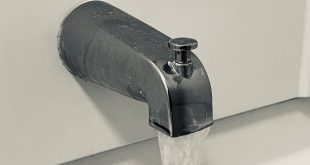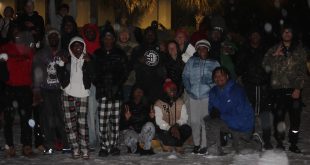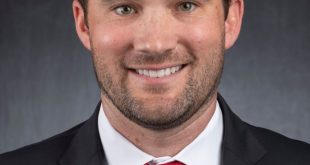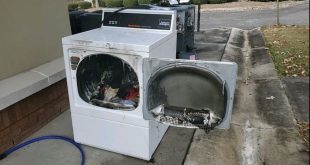Summer is finally here, and VSU students are ready for a break.
Whether it’s soaking up the sun on a beach in our neighboring state of Florida, escaping to a cooler climate by heading up north or just catching up on long needed beauty sleep, many are happy to kick up their feet for 10 weeks. Thinking about an upcoming exam and waking up at 8 a.m., is a thing of the past.
For many students, though, they get a break from school but not from the pressure that comes along with it: tuition.
It’s no secret that college is expensive. Fees for attending a full semester at VSU average at $3,027.37 for in-state students and $8,597.84 for out of state students. This does not include the estimates for textbooks which can easily amount to $100 per book even with discounted rentals.
When you add that in with housing and meals, VSU estimates that attendance for two semesters equals $16,336 to $29,818. The Board of Regents of the University System of Georgia voted for a zero percent increase for tuition for the next two semesters, but that comes as little consolation with those kind of fees.
“You could buy a car with that type of money,” Kymberlee Sanders, an incoming freshman, said.
Instead of completely taking time off during the summer, students are opting to work to continue paying for college. Sanders has applied to a plethora of jobs, finally scoring an interview at the Fellowship Nursing Home located in Brooks County.
“It’s like you finally clear your busy schedule with summer vacation and replace it with something else, work,” Sanders said. “Now, you must do both to maintain school. Most people my age are not making money like that. I hope I don’t need a loan.”
However, some students have found other ways to make extra money instead of working or incurring governmental debt.
“You can give plasma to get extra money,” Karley Brown, a sophomore education major, said. You can babysit. I work extra hours.”
Students can donate plasma twice a week for up to $25 dollars at the Biotest Plasma Center located in downtown Valdosta on Patterson Street.
School is out for all K-12 students in Valdosta, and with more children at home, babysitting jobs will be plentiful.
Another way to make extra income is by selling old items. Consignment stores such as Plato’s Closet on Baytree Road in Remerton appraises clothing. Customers can choose to donate, and the store will give them cash for it.
“Sometimes I’ll get $5, and sometimes I get lucky and get $40,” Sanders said. “It depends on the brand and how much they’re willing to give.”
Other websites such as EBay, Facebook Marketplace and Craigslist’s help people sell their used items for quick cash.
Electronics in particular are popular for reselling. Old cell phones that are not in use can still go for an average of $30 dollars on websites such as Swappa and Gazelle.
Of course, many students have found themselves jumping on the “driver” craze, becoming an Uber or Lyft driver or just running their own service.
“Whenever I’m strapped for cash, I’m willing to give rides for money,” Rodrick Cornelius, a former VSU student, said. “I made $28 in a couple of hours. I would use Uber, but doing it myself leaves me with all the cash.”
One rarely used way to earn cash is to participate in a focus group. A focus group asks for participant’s feedback and uses it for market research. Earnings can range from $10-$150 which can add up if participation is weekly.
FocusGroup.com posts listings in the area and posts the duration of testing and the pay rate.
One great option for university students and the state of Georgia in general are rental assistance programs. These are programs for low-income individuals that provide payments for rent or assistance in other areas such as utilities and food to leave more money for rent.
Two agencies in the Valdosta area are the Salvation Army, located at 320 Smithland Place and Coastal Plain Area Economic Opportunity Authority on 1810 West Hill Ave. Both provide aid in areas such as housing development, job searching, utilities, clothing and food.
These are just some of the ways to alleviate fees for college and living in general. For more information, consult the Georgia Labor Department for programs to help with any expenses.
Story by Malia Thomas, staff writer. Photo courtesy of Pixabay.
 The Spectator The independent student newspaper of Valdosta State University
The Spectator The independent student newspaper of Valdosta State University






